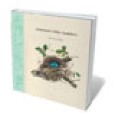 Curiosity: How Science Became Interested in Everything
Curiosity: How Science Became Interested in Everything
- Philip Ball
The seventeenth-century shift in Western thought may be labelled the Scientific Revolution but, argues science writer Philip Ball, it was more a sea change in how we view curiosity. That singular trait, which was once condemned, became an engine driving our inexhaustible hunt for knowledge. In this magisterial work, Ball examines the people, events and inventions at the turning point, including “professors of secrets”, cabinets of curiosities, the investigations of Francis Bacon, the plays of William Shakespeare, the rise of polymaths — and the echoes of all this in today's science.
 Moral Origins: The Evolution of Virtue, Altruism, and Shame
Moral Origins: The Evolution of Virtue, Altruism, and Shame
- Christopher Boehm
Ethologist and anthropologist Christopher Boehm exposes the roots of generosity and peer disapproval. Eschewing evolutionary game theory, he opts instead for natural selection within the social environment. Boehm posits that selection began with a “crime and punishment” scenario: thugs would have been kicked out of early hunting bands as threats to group survival, and alpha-male hogging of sexual favours would not have been tolerated. Altruism would, argues Boehm, be increasingly valued in partners and allies. Ultimately, such social control might have caused biological change.
 Fear of Food: A History of Why We Worry About What We Eat
Fear of Food: A History of Why We Worry About What We Eat
- Harvey Levenstein
The United States is a nation gripped by gustatory paranoia, says historian Harvey Levenstein. In this punchy, entertaining account, he reveals how US consumers have suffered for decades from anxiety over the provenance of a pork chop or the fat in fromage frais. An army of scientists, he says, stoked fear about everything from germs and a lack of vitamins to additives and industrial processing, inadvertently fostering the eating disorder that affects modern US society. Levenstein calls for moderation in all things — including moderation — to regain the joy of eating.
 America's Other Audubon
America's Other Audubon
- Joy M. Kiser
Genevieve Jones should have been a towering figure in natural-history illustration. In the 1870s, she resolved to plug the gaps in Jean James Audubon's The Birds of America (1838). She learnt lithography, and with Eliza Schulz began the exquisite colour plates for Illustrations of the Nests and Eggs of Birds of Ohio. The pictures — sold by subscription — were bought by the likes of US President Theodore Roosevelt and hugely admired. Then Jones died of typhoid. Researcher Joy Kiser tells how Jones's family battled to finish the 68 plates; reproductions, with updated keys, are included.
 The Value of Species
The Value of Species
- Edward L. McCord
In this meditation on the inherent worth of nature, philosopher and naturalist Edward McCord offers a new twist on the argument for 'deep conservation'. Each species, he posits, is the astonishing repository of millions of years of natural selection — a volume in Earth's library of life forms. So protecting all creatures is a case of neither need, compassion nor economic value. Instead, their worth is down to their intellectual value, he argues: to the inquisitive mind, each species is incalculably valuable, from bacteria to blue whales.
Rights and permissions
About this article
Cite this article
Books in brief. Nature 485, 37 (2012). https://doi.org/10.1038/485037a
Published:
Issue Date:
DOI: https://doi.org/10.1038/485037a





